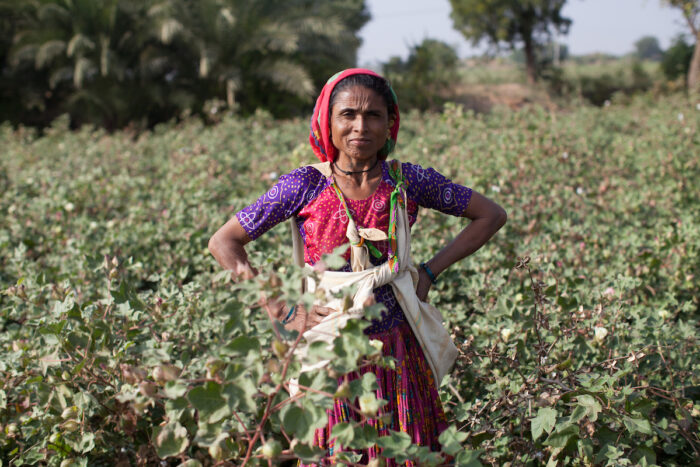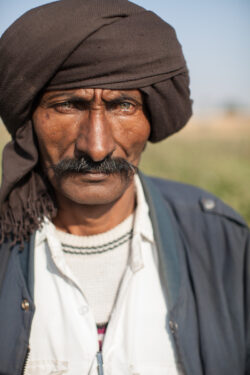Life on the Margins during the Covid-19 Outbreak
If ever there was a doubt, these past few weeks of the CoViD-19 outbreak have brought into focus the globalized and interconnected nature of our lives, societies and economies. It is not surprising therefore, that the main tool being used to counter the spread of this global pandemic has been to initiate the exact opposite of how our world works right now – which is to undertake an unprecedented scale of shutdowns and lockdowns. These measures are not only curtailing the flow of people but also (non-essential) goods and services. Disruption to the travel, hospitality, restaurant, events, sports and entertainment industry have been noticed by all of us. However, the deeper and somewhat unnoticed impact has been the sudden disruption across various global supply chains.
The reverberations of stores shuttering down in New York or Paris have of course been felt by the local economies and workforce but its impact on factories and workers in Tirrupur and Dhaka has been equally significant. Brands have been cancelling orders across their global supply chains, in many cases, orders which were in transit or ready to be shipped or in very advanced stages of production have also been cancelled. As brands cancel their current and future orders to protect their interests, once again the economic and social burden is being disproportionately felt by some of the most vulnerable in the supply chains — the workers in the textiles and garment factories, and amongst them, most acutely by those on the margin- the contract labour, daily wage workers and piece rate workers. Cancellation of orders resulting in immediate loss of current and future wages, particularly in a time of a major public healthcare crisis where the governments are mandating a lockdown for weeks, is a recipe for mass-starvation. To avoid this, local governments will need to step in, despite already stretched public funding and provide critical food security.
The outbreak of the pandemic has also brought to the fore tensions between the need to protect one’s health and ensuring public health safety and the need to earn a livelihood. This challenge is being felt across factory floors to the farm gates. While most of the cotton had been harvested and sold by farmers across India by January to early February, those fortunate to have access to irrigation are currently in the final stages of their Rabi crop cycle (winter crop cycle). I recently spoke with Mr. Sailesh Patel, a farmer and the CEO of a Fairtrade certified cotton farmer producer company RDFC (Rapar & Dhrangadhra Farmer Producer Company). During our conversation, I learnt that farmers in Kutch (a region of the state of Gujarat, India) grow a long duration variety of cotton known as Deviraj which is typically harvested across mid-March to end April. These farmers are now facing the unenviable choice between either leaving their cotton fields untended and facing crop loss or risking breaking the government notification on the public shutdown and their own health to harvest the cotton. Other cotton farmers in the state who had planted the early harvest varieties of cotton are currently in the middle of wheat and cumin cultivation in the Rabi crop cycle. They too are concerned about crop loss, particularly in the face of climate change and the unseasonal rain that the region is facing. An additional concern that Sailesh Bhai shared was that even if the farmers were to somehow successfully harvest their crops, they would be unable to sell their produce as local mandis (agricultural markets) and buyers would also be following the shutdown rules. With all local supply chains having been brought to a halt and the pandemic showing no signs of abating, will we be in an ironic position where farmers would not receive a fair price and lose income (whether due to wastage or lack of harvesting capacities) for products which are increasingly becoming scarce and expensive in the urban hubs of our countries?

A similarly dire situation is being faced by farmers who don’t have access to irrigation and are cultivating crops (including cotton) in the rain-fed regions of India. Most of the farmers from such regions typically migrate to urban areas to work as daily wage earners for part of the year (January to May) when their lands lie fallow. They return in June to plant their fields before the monsoon season hits their region. With the onset of the CoViD-19 in India and shutdowns being followed by most small and micro enterprises – in line with the government notifications – the migrant workforce has been left stranded. Not only are they losing income but many do not have means to take adequate shelter in this period of shutdown. I spoke with representatives of the Pratima Organic Grower Group of cotton farmers based in the Bolangir district of Orissa, India and was told that some of their members who had migrated to states like Gujarat and Maharashtra during the off season were stranded, unable to even obtain food. Such stories of despair are not isolated and really bring to the fore the devastation to communities and livelihoods that the CoVid-19 outbreak is wrecking. Last week, India saw the desperate reverse migration of the migrant workforce from urban hubs which had shut down overnight, leaving most of them without food and in some cases, shelter. Many of the migrant workers are attempting to walk hundreds of kilometers back home to the “safety” of their villages while tens of thousands of others in places like Delhi, vied with one another in a frenzied scramble to board buses to the nearest towns to their villages. One can only hope that the workers reach home safe and that the CoViD-19, which had thus far been concentrated in urban hubs, does not make the journey to rural India. Only time would tell. What still remains is the need to ensure that these migrant populations and their dependents get access to sufficient food during the remaining part of the shutdown.
Moments of crises, such as the CoViD-19 outbreak, test the resolve and character of governments, societies and citizens. We are tested on how we overcome such all-encompassing adversity. The crisis also distils what we value and what we need to do to build resilience collectively and as individuals. It has been heartening to see the public appreciation for those on the frontlines – the doctors, nurses and public health workers – fighting the disease, but also for those who are keeping our societies running by ensuring the flow of essential services such as food deliveries, sanitation, utilities, security, and financial services among others. Things that we have taken for granted all along are now being valued and appreciated. As the flow of goods and services slow down in the urban centres, the crucial links between the villages and cities also come to the fore. Cities can sustain their fast-paced economic activities only because of the food and agricultural products grown and supplied by our villages and farmers. We therefore have a responsibility as citizens and consumers to make sure that we are not exploiting or giving poverty wages and income to those who provide us sustenance. The resilience and strength of the farmers and workers is crucial to build our resilience in cities. We need to appreciate this now and remember it for posterity.

The crisis has also heightened the expectation from governments and their role in ensuring public healthcare and providing basic food security and sustenance. Governments across the world are being asked to step in to ensure that vulnerable members of our communities who are also the backbone of our economies and supply chains – micro-entrepreneurs, workers and farmers – are supported financially and are provided adequate food rations. Policies need to be rapidly deployed to ensure that the agricultural sector and supply chains can be reopened (as essential services) with due protection taken for the safety of their health. Additionally, various government interventions are also being sought to prevent local economies from falling off the precipice. There is no doubt that the measures taken to contain the spread of CoViD-19 have resulted in widescale economic hardship, even challenging the economic survival of many enterprises and the associated wages for the workforce. For the time being, however, the focus must and should remain on containing CoViD-19 and preventing the loss of lives.
There is one more critical stakeholder facing heightened scrutiny and public expectation – private enterprises. The CoVid-19 crisis has heightened the need for responsible businesses to play an active role in helping society overcome this unprecedented challenge. Businesses which partner with governments and which put consumer requirements above their profit motives and, at the very least, don’t exploit the situation for making super-normal profits. Businesses which don’t flee and leave the vulnerable members of their supply chains at the first sight of a crisis in order to protect their bottom line but rather, follow ethical and responsible business practices which would serve them better in the long run.
The fight to overcome this global challenge continues on a ‘war footing’ and governments, communities and some businesses are coming together to meet the challenges of the day. Although some predict that the global outbreak may last a few more months, some countries are already looking at re-building communities and re-starting their economies. One thing everyone agrees on is that the world at the other end of the outbreak is going to be quite different. Hopefully, it shall be a world that is not only more resilient but also a more considerate and responsible one which recognises the value of each one of us and ensures a life of dignity, security and sustainability for all.
Abhishek Jani is the CEO of the Fairtrade India project. Fairtrade India is working towards building a responsible consumer and business movement in India which ensures that farmers and workers behind our consumption choices (food and fashion) are not exploited and treated fairly and the environment is cared for. Fairtrade India creates awareness about sustainability and Sustainable Consumption and Production (SDG12) and also works with businesses to create sustainable supply chains for the farming communities.
Photographs by Sean Hawkey








